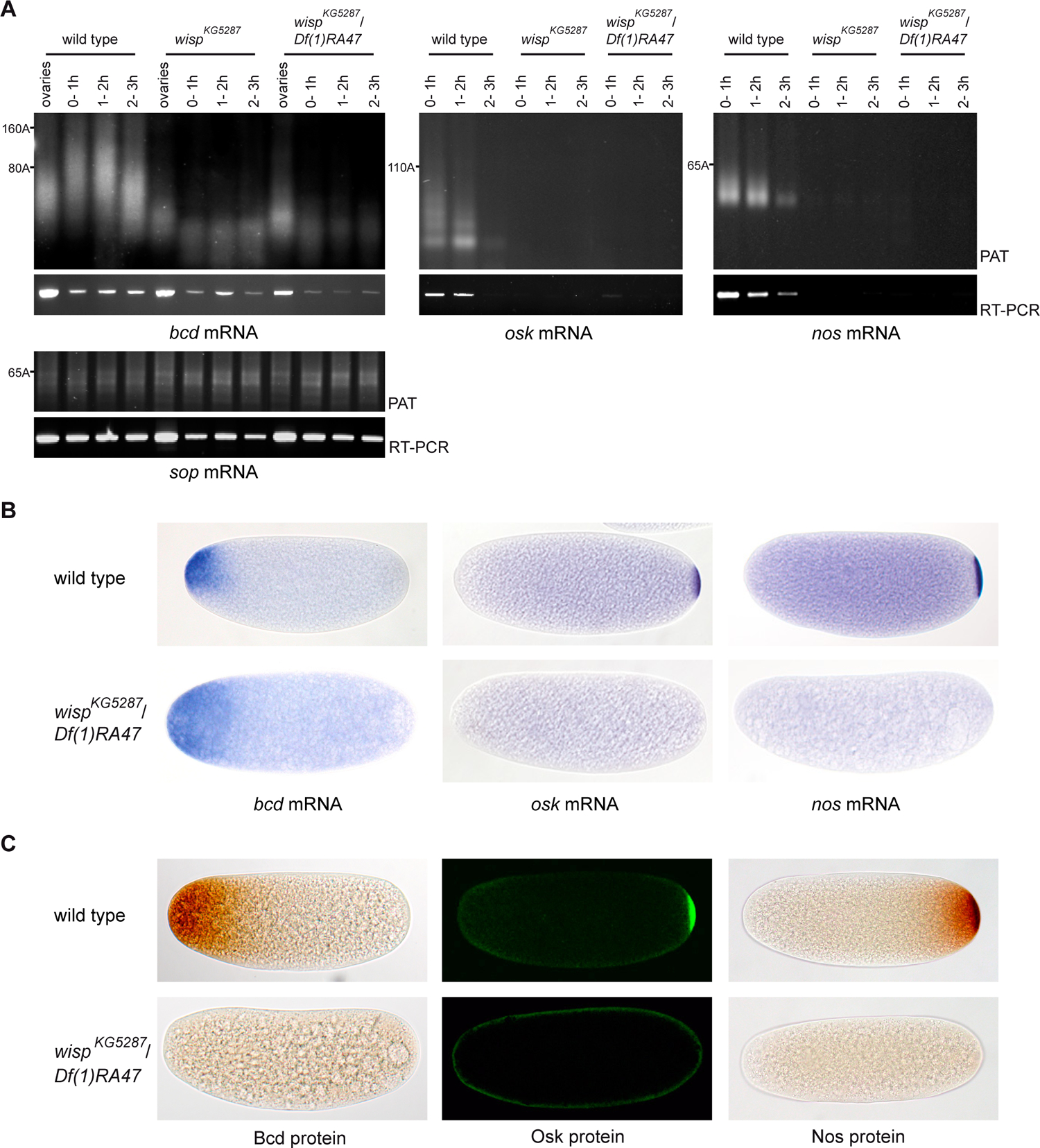Figure 7:

Role of Wisp in cytoplasmic polyadenylation in early embryos
(A) PAT assays and RT-PCR of bcd, osk and nos mRNAs in embryos from 0–1 h, 1–2 h and 2–3 h of development, from wild-type, wispKG5287 or wispKG5287/Df(1)RA47 females. In the absence of Wisp, osk and nos mRNAs are destabilized and the poly(A) tails of bcd mRNA are not elongated in embryos. sop mRNA was used as a control. The sop RT-PCR is the loading control for bcd, osk and nos RT-PCR. For bcd mRNA, PAT assays from ovaries were loaded to show the poly(A) tail elongation between ovaries and early embryos in the wild type.
(B) In situ hybridizations of 0–1 h embryos showing bcd, osk and nos mRNA.
(C) Immunostaining of 0–1 h embryos with anti-Bcd, anti-Nos and anti-Osk antibodies showing that the lack of poly(A) tail elongation in wispKG5287/Df(1)RA47 mutant embryos, leading or not to mRNA decay, results in the lack of corresponding proteins. Note that the lack of nos mRNA/protein at the posterior pole could also result from the lack of Osk protein as Osk is required for nos mRNA stabilization.
